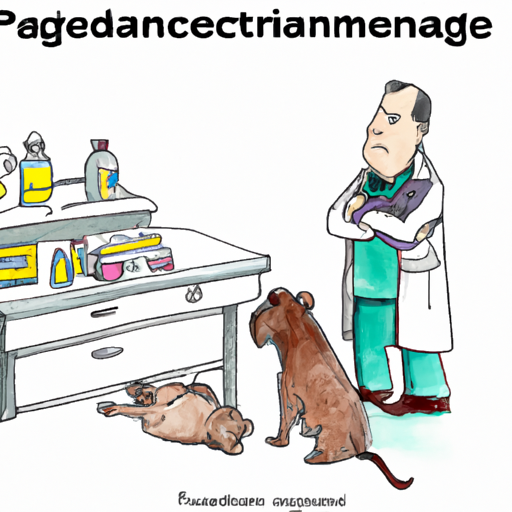Recognizing the Signs of Pancreatitis
Pancreatitis in dogs can be a daunting diagnosis, but early detection and treatment can significantly improve your furry friend’s prognosis. Note any sudden changes in your dog’s behavior or health. Symptoms may include:
- Decreased appetite
- Vomiting
- Abdominal pain
- Diarrhea
- Lethargy
- Fever
If you spot these signs, consult with your vet immediately. The earlier pancreatitis is diagnosed, the better your dog’s chances of recovery.
Understanding the Cause of Pancreatitis
The exact cause of pancreatitis in dogs is often unclear, but several factors may increase a dog’s risk. These include:
- High-fat diet
- Obesity
- Diabetes
- Certain medications
- Metabolic disorders
- Trauma to the abdomen
Understanding these risk factors can help you prevent future pancreatitis flare-ups in your dog.
Treatment Options for Canine Pancreatitis
Typically, veterinarians will focus on managing your dog’s symptoms and preventing complications. Treatment may include:
- Fasting: To allow the pancreas to rest and recover.
- IV Fluids: To prevent dehydration from vomiting and diarrhea.
- Pain Medication: To manage abdominal pain.
- Anti-nausea Medication: To control vomiting.
- Low-fat diet: To reduce strain on the pancreas.
Your vet may recommend hospitalization for severe cases. Always follow your vet’s instructions for the best outcome.
| Treatment | Purpose |
|---|---|
| Fasting | Rest and recovery for the pancreas |
| IV Fluids | Prevention of dehydration |
| Pain Medication | Management of abdominal pain |
| Anti-nausea Medication | Control of vomiting |
| Low-fat diet | Reduction of strain on the pancreas |
Preventing Future Pancreatitis Flare-ups
After your dog recovers, your vet will likely recommend lifestyle changes to prevent future pancreatitis flare-ups. These may include:
- A low-fat diet
- Regular exercise
- Weight management
- Regular vet check-ups
Implementing these changes can help ensure your dog’s long-term health and happiness.
Supporting Your Dog During Recovery
Recovering from pancreatitis can be a slow process that requires your patience and support. Comfort your dog during this time as much as possible. Provide them with a quiet and comfortable space to rest, follow your vet’s dietary recommendations, and administer prescribed medications as directed. Remember, your love and care can make a big difference in your dog’s recovery.
FAQ
Q: Can pancreatitis be cured in dogs?
A: While pancreatitis can be managed and symptoms can be relieved, there is no definitive cure. Lifestyle changes and treatment can help prevent future flare-ups.
Q: Is pancreatitis in dogs painful?
A: Yes, pancreatitis can cause severe abdominal pain in dogs. Pain management is a crucial part of treatment.
Q: Can a dog survive pancreatitis?
A: Yes, many dogs can recover from pancreatitis with proper treatment and care. Early detection is key to a successful recovery.
Q: How long does it take a dog to recover from pancreatitis?
A: Recovery time can vary greatly depending on the severity of the condition. It can take anywhere from a few days to several weeks.



